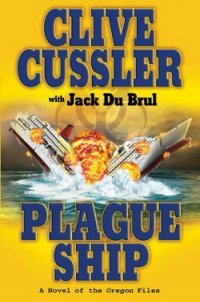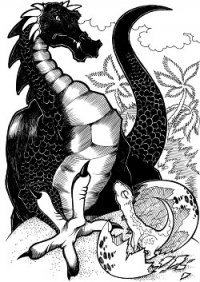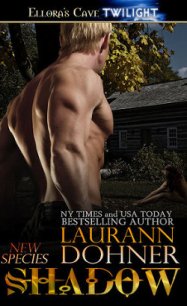Circle of Bones - Kling Christine (полная версия книги txt) 📗
Hazel said, “We watched you two all day pouring over that book and scribbling on paper. Have you figured out where you’re going yet?”
Riley glanced at Cole and then back to Hazel. “Not exactly. But I was thinking about it when I was out looking at the stars this evening, and there is something in the journals I want to check .”
Cole stood up. “I’ll get it.” He returned a few minutes later with the last volume of his father’s journals, several sheets of paper, pencils, and the marble paperweight. He pushed their coffee cups aside and spread them out on the tablecloth.
“May I see that?” Niko asked, reaching across the table to indicate the paperweight.
“Sure.” Cole handed it to him.
Riley reached for the journal as the two men played with the device. She turned to the page with the odd song and read it over one more time.
“Ah, I see,” Niko said. “Hazel, darling, did you see this? Isn’t it clever?”
Hazel grinned across the table at Riley. “Where did you say you found this little treasure?”
“We dug it up on Dominica. Cole’s father left him these journals and buried that for Cole to find.” She pointed to the calendar. “But now, we don’t know what he wanted us to do with it.”
“What did you find out at the library?” Theo asked.
“Nothing that will help us,” Cole said. “Riley and I went over and over that on the plane this morning. Most scientists don’t think there’s anything significant about the date when the calendar ends.”
“Oh yeah,” Hazel said. “The world is supposed to end sometime in 2012?”
Riley turned the journal around and slid the book across the tablecloth so Hazel could see Thatcher’s last entry.
Theo reached across the table and pointed to the text. “You see this line where he writes, ‘Wits end is where I am. Spent a bit of time there. Expect to be there til the end of days.’ Cole thought because he mentioned end of days, that might mean we should set the calendar for that date.”
Cole took the device from Niko and turned the top plate carefully, lining up the months and years. “So, you see that when we set the month for December under the year 2012, we see that the 21st day will fall on a Friday. But we can’t figure out what Friday might mean – if anything. This afternoon, Riley and I asked your captain for charts and maps of Guadeloupe and Dominica, and there isn’t any place name on either island that uses the word Friday.”
“Or the French word vendredi,” Riley added.
Hazel pointed to the page in the journal. “What is this song here?” She read the words aloud.
“Fais pas do do, Cole mon p’tit coco, Fais pas do do, tu l’auras du lolo, Yayd d’dir, Y’did yd, Jamais fais do do. Riley, what language is that middle part?”
“I thought at first that it was some kind of Creole phrase. But I had another idea this afternoon. Let me check.” She ran her fingers under the letters of the two odd lines and counted under her breath. “Hmm. Both lines have an even number of letters.”
Cole stepped from behind her chair and stood at the head of the table. He pulled the book closer. “So what are you getting at?”
“Well, coordinates on a chart are always in pairs. Like latitude and longitude.”
“Oh no,” Theo said. “Not again.”
“Riley,” Cole said, “Theo and I have been trying to get longitude and latitude coordinates out of those two lines for months now. We’ve tried everything.”
“But what if they were coordinates on a different sort of graph? Remember when I was asking you this afternoon about the different puzzles your father sent when you were a boy? You mentioned one called a Polybius square or checkerboard.”
“What in the world is that?” Hazel said.
Cole rubbed his hand across the whiskers on his cheek in a gesture she was getting to know that meant his brain was jumping ahead. “It’s a bifid cypher that uses a pair of letters or numbers in the cipher text to represent one single letter of plain text,” he said. “For a Polybius square, you create a five by five grid and fill in the letters of the alphabet.”
“You lost me at bifid cipher,” Hazel said.
“Here, I’ll show you. Riley, grab a pencil.”
She picked up a pencil and pulled a blank sheet of paper to her.
“Now draw a big square,” he said, “and make five columns then five rows across.”
Riley began sketching the grid.
“That gives us twenty-five boxes, but there are twenty-six letters in our alphabet, so start filling in the squares with the alphabet. You can put the last two, Y and Z, on the same square.”
Riley filled the squares with letters as he talked.
“Are you all with me so far?”
They nodded.
Cole picked up the pencil when she had finished and began using it as a pointer. “Then you select two five-letter words and write them along the outside horizontal and vertical edges. So let’s say your cipher text is AF; you find the A row in the word on the left side and the F column from the word on top. Then follow down to the square those two coordinates lead you to. The key to the cipher is knowing what those two words are.”
Hazel leaned back in her chair. “How on earth are you going to figure out which words to use?”
Theo said, “Too bad Friday is a six letter word.”
The five of them sat there is silence staring at Riley’s sketch.
“Wait,” Riley said. “Theo’s got something. Look at those lines in the song. The only letters used are RIDAY. Cole, give me that pencil.”
He handed it to her, and Riley added an additional row and column to her box making it six by six. Then she wrote the word FRIDAY down the left side of the page. She used the same F in the top corner and wrote RIDAY across the top. When she was finished, she presented the paper to Cole.

“Riley, you’re brilliant!” Cole said. He leaned down and kissed her on the mouth.
She felt her brain short circuit and flicker for a moment like the lights did during a power surge.
Cole rested his elbows on the table again, pencil in hand. “Theo, read me the letter pairs from the song chorus.”
“Okay. Ya.”
Cole found the intersection of the Y row and the A column. On another sheet of paper, he wrote the letter X.
“Then yd.”
Cole repeated the process and wrote the letter W.
When Theo finished reading him the letters, Cole looked at what he had written: XWMFWHW.
“Does that mean anything to anybody here?” he asked.
They all shook their heads, but nobody said a word. Riley felt sure they were close, but they’d missed something.
Finally Cole broke the silence. “Well, it was a good idea, Riley. But you know, it’s getting late.”
Riley tried to think like James Thatcher, the man who lived in the ’Tween.
Cole pushed the paper aside and stood. “If we want to shake the Brewsters, we’ve got to leave tonight early enough to get a good head start.”
Hazel looked up at him. “But where will you go?”
“Wait a minute,” Riley said. She had not stopped staring at the Polybius square she had drawn.
“Riley, it’s already nearly ten,” Cole said.
She pointed to the grid. “What if we use the coordinates backwards?”
“What do you mean?”
“You know, instead of latitude and then longitude, what if we use them the other way around? Your father was trying to prevent people like Diggory Priest from finding this. He wouldn’t have made it easy.”
Cole shrugged. “It’s worth a try.” He dropped back into his chair.
“Read me the letters again,” she said.
Cole slid the journal across the table and turned it around so he could read it. “Okay. Ya.”
Riley ran her right index finger across the top of the grid to the Y column. With her other hand, she traced a finger across the A row. She wrote the letter T.




